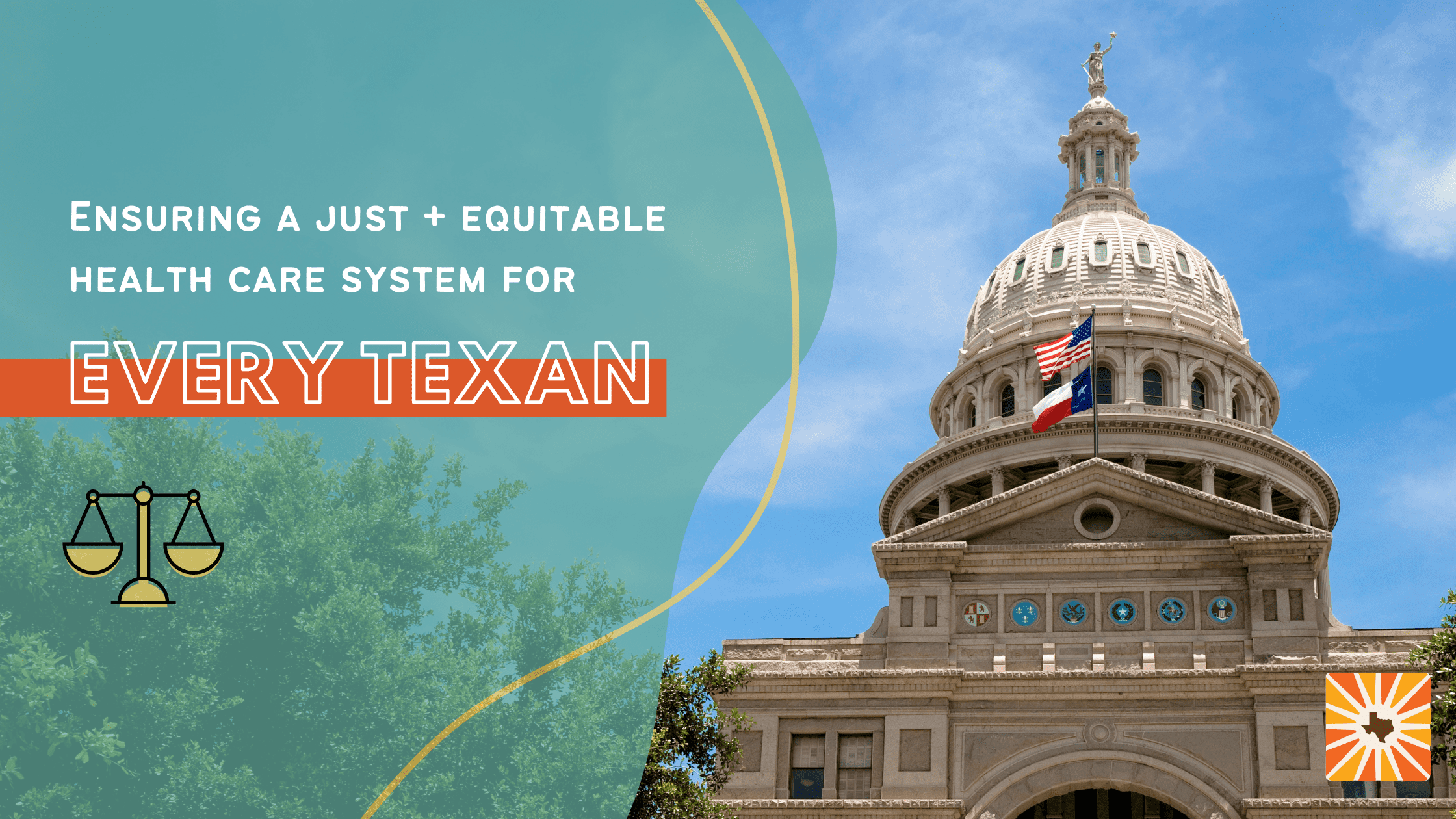View this testimony as a PDF here.
Every Texan supports the Centers for Medicare and Medicaid Services’ (CMS) proposal to end the exclusion of Deferred Action for Childhood Arrivals (DACA) recipients from eligibility to purchase plans and obtain subsidies on the Affordable Care Act (ACA) marketplaces, and for certain other health insurance affordability programs. We further support CMS’ proposal to implement clarifications and technical corrections that will simplify ACA marketplace enrollment and improve access to health coverage. Furthermore, Every Texan has signed onto other comments in support of this rule including Young Invincibles, Protecting Immigrant Families, and the National Immigration Law Center.
At Every Texan, we envision a Texas where people of all backgrounds—regardless of race, ethnicity, socioeconomic status, gender identity, sexual orientation, national origin, and disability status—can contribute to and share in the prosperity of our state. The Benedictine Sisters of Boerne, Texas, founded Every Texan in 1985 to advance public policy solutions for expanding access to health care. We became an independent, tax-exempt organization in 1999. Texas faces long-standing challenges to optimal health, including food insecurity. We are based in Austin, Texas, and work statewide.
Texas is the state with both the largest number and percentage of uninsured residents in the United States. Texans face many barriers to accessing affordable health coverage, a significant one being a lack of fair options. Our state has some of the most restrictive Medicaid eligibility criteria in the country for adults, and is one of only 10 states that have not yet expanded Medicaid. These barriers are only exacerbated for immigrants and their families.
Texas is one of 7 states that exclude “qualified immigrant” adults with dates of entry after 8/22/1996 for Medicaid eligibility purposes. This leaves very few “lawfully present” or “qualified” immigration statuses eligible for Texas Medicaid, and the small number of eligible immigrant adults not fully excluded are still locked out of a coverage option because of the Texas Medicaid coverage gap. However, the passage of the Affordable Care Act created a pathway for “lawfully present adults” who are not Medicaid eligible to receive both subsidies and cost sharing reductions, even below 100% of the federal poverty level. Many Texan immigrants under the “lawfully present” category have access to affordable and adequate health coverage through HealthCare.Gov, while Texas citizens in the same income level do not.
People with Deferred Action for Childhood Arrivals are lawfully present and should be treated as such. For over a decade, DACA has protected more than 800,000 individuals living in the US. Today about 580,000 recipients benefit from it, of whom more than 95,000 live in Texas. Yet due to a 2012 U.S. Department of HHS (HHS) decision, DACA recipients have been excluded from the health coverage that could have supported their ability to survive and thrive.
We support CMS in choosing to rectify that decision given that other deferred action recipients have never been excluded and doing so will better allow DACA recipients to contribute to the country they call home. HHS estimates that about 129,000 people with DACA are likely to benefit from this change.
We also support the proposed rule’s clarifications that will reduce barriers to health care for additional groups of immigrants. The proposals would simplify enrollment for many applicants, including vulnerable children such as recipients of Special Immigrant Juvenile Status and children under the age of 14 with pending applications for asylum, withholding of removal and relief under the Convention Against Torture (CAT).
The proposed rule includes an effective date of November 1st to align with the annual ACA open enrollment period. We encourage CMS to schedule this rule to take effect as soon as possible, but no later than November 1st. With DACA under threat and increased wait times at USCIS, immigration relief recipients and applicants cannot wait for sufficient health care.
We also encourage CMS to invest heavily in outreach and in partnership with navigators, enrollment assisters, and community-based organizations to ensure immigrants and their families know the coverage options available to them.
